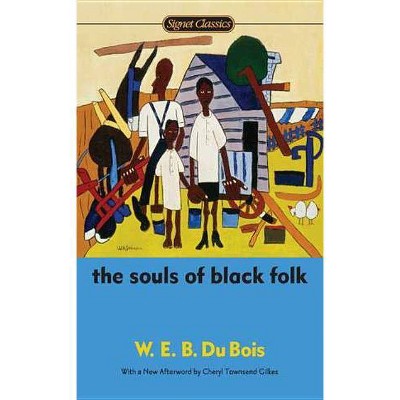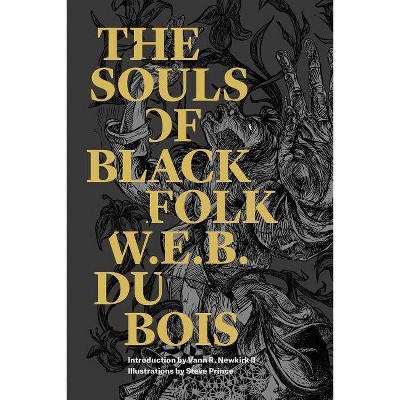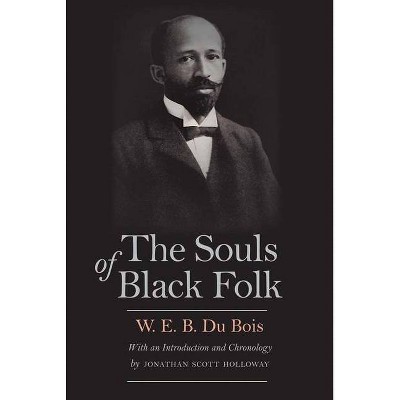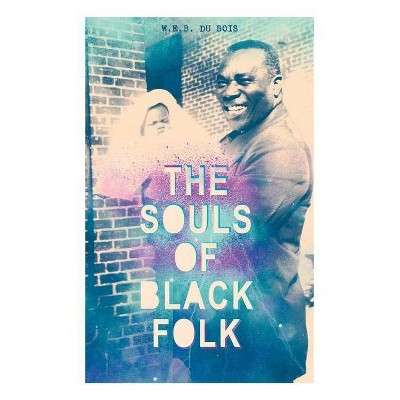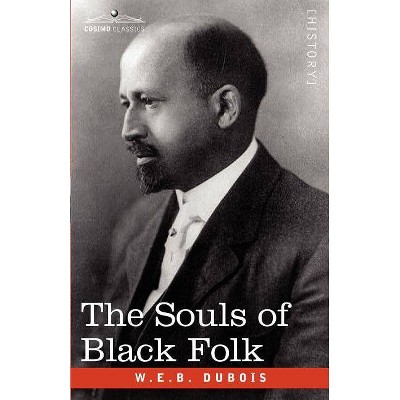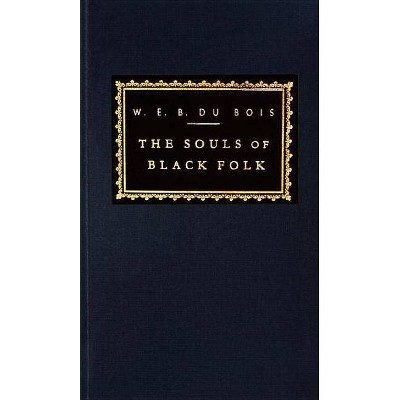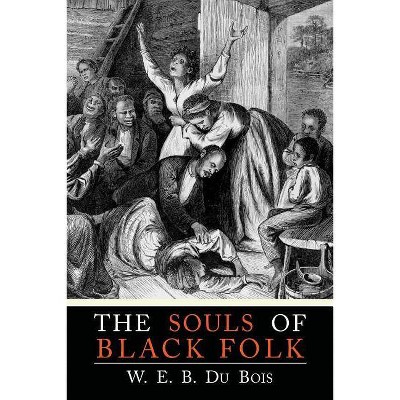The Souls of Black Folk - (Penguin Classics) by W E B Du Bois (Paperback)
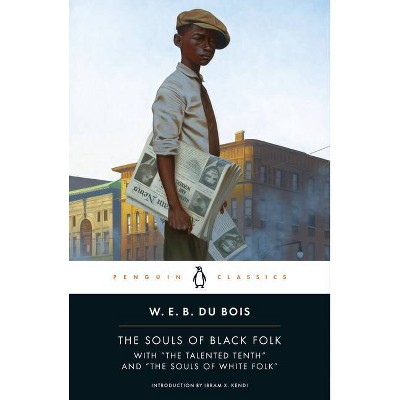
Similar Products
Products of same category from the store
AllProduct info
<p/><br></br><p><b> About the Book </b></p></br></br>"Du Bois' 1903 collection of essays is a thoughtful, articulate exploration of the moral and intellectual issues surrounding the perception of blacks within American society."--Provided by publisher.<p/><br></br><p><b> Book Synopsis </b></p></br></br><b>The landmark book about being black in America, now in an expanded edition commemorating the 150th anniversary of W. E. B. Du Bois's birth and featuring a new introduction by Ibram X. Kendi, the #1 <i>New York Times </i>bestselling author of <b><i>How to Be an Antiracist, </i>and cover art by Kadir Nelson</b></b><br> <b> </b><br> "The problem of the Twentieth Century is the problem of the color-line."<br> <b> </b><br> When <i>The Souls of Black Folk </i>was first published in 1903, it had a galvanizing effect on the conversation about race in America--and it remains both a touchstone in the literature of African America and a beacon in the fight for civil rights. Believing that one can know the "soul" of a race by knowing the souls of individuals, W. E. B. Du Bois combines history and stirring autobiography to reflect on the magnitude of American racism and to chart a path forward against oppression, and introduces the now-famous concepts of the color line, the veil, and double-consciousness. <p/> This edition of Du Bois's visionary masterpiece includes two additional essays that have become essential reading: "The Souls of White Folk," from his 1920 book <i>Darkwater, </i> and "The Talented Tenth." <p/>For more than seventy years, Penguin has been the leading publisher of classic literature in the English-speaking world. With more than 1,800 titles, Penguin Classics represents a global bookshelf of the best works throughout history and across genres and disciplines. Readers trust the series to provide authoritative texts enhanced by introductions and notes by distinguished scholars and contemporary authors, as well as up-to-date translations by award-winning translators.<p/><br></br><p><b> From the Back Cover </b></p></br></br>First published in 1903, this eloquent collection of essays exposed the magnitude of racism in our society. The book endures today as a classic document of American social and political history: a manifesto that has influenced generations with its transcendent vision for change.<p/><br></br><p><b> Review Quotes </b></p></br></br><br>"I was assigned this book of essays in college and it was transformative for me as a person and a writer. Du Bois captures the complexity and the interiority of what it's like to be black in the United States, and even though it was written more than a century ago, the way Du Bois writes makes it feel like he wrote this book last year." --<b>Tomi Adeyemi, #1 <i>New York Times </i>bestselling author of <i>Children of Blood and Bone, </i>in the <i>Good Morning America</i> Book Club</b> <p/>"A work that is still relevant today . . . Vividly depict[s] what it was like to be black . . . Many of the ideas that Du Bois outlined in the book still endure. . . . [A book] for anyone who wants to understand America." --<b>Lynn Neary, NPR's <i>Morning Edition</i></b> <p/>"[<i>The Souls of Black Folk</i> is] the foundation on which Du Bois built a lifetime of ideas, and on which the black and antiracist intelligentsia continues to build today. . . . In 1903 . . . black newspapers . . . typically shouted in unison, 'SHOULD BE READ AND STUDIED BY EVERY PERSON, WHITE AND BLACK.' . . . And today it still SHOULD BE READ AND STUDIED BY EVERY PERSON." --<b>Ibram X. Kendi, from the Introduction<br></b><br><p/><br></br><p><b> About the Author </b></p></br></br><b>William Edward Burghardt Du Bois</b> (1868-1963) was born in Great Barrington, Massachusetts. He attended public schools there prior to attending Fisk University, where he received his BA degree in 1888. Thereafter he received a second BA degree, and an MA and PhD from Harvard. He studied at the University of Berlin as well. He taught at Wilberforce University and the University of Pennsylvania before going to Atlanta University in 1897, where he taught for many years. A sociologist, historian, poet, and writer of several novels, Du Bois was one of the main founders of the National Association for the Advancement of Colored People. He was a lifelong critic of American society and an advocate of black people against racial injustice. He spent his last years in Ghana, where he died in exile at the age of ninety-five. <p/><b>Ibram X. Kendi </b>(introduction) is the Andrew W. Mellon Professor in the Humanities at Boston University and the founding director of the BU Center for Antiracist Research. A contributing writer at <i>The Atlantic</i> and a CBS News correspondent, he is a coeditor, with Keisha N. Blain, of the #1 <i>New York Times</i> bestseller <i>Four Hundred Souls</i> and the author of many other books, including <i>The Black Campus Movement</i>, which won the W. E. B. Du Bois Book Prize; <i>Stamped from the Beginning: The Definitive History of Racist Ideas in America</i>, which won the National Book Award for Nonfiction; and three #1 <i>New York Times</i> bestsellers: <i>How to Be an Antiracist</i>;<i> Stamped: Racism, Antiracism, and You, </i> co-authored with Jason Reynolds; and <i>Antiracist Baby</i>, illustrated by Ashley Lukashevsky. A MacArthur Fellow and one of <i>Time</i> magazine's 100 most influential people in the world, Kendi lives in Boston, Massachusetts.
Price History
Cheapest price in the interval: 11.99 on October 28, 2021
Most expensive price in the interval: 11.99 on November 6, 2021
Price Archive shows prices from various stores, lets you see history and find the cheapest. There is no actual sale on the website. For all support, inquiry and suggestion messagescommunication@pricearchive.us

